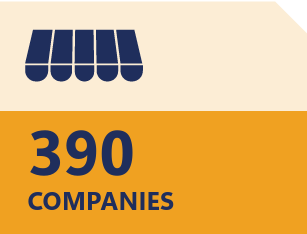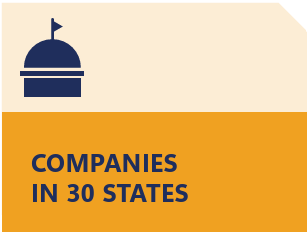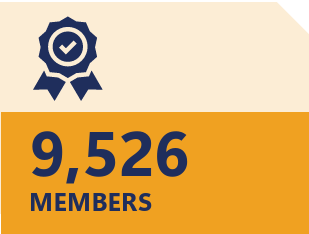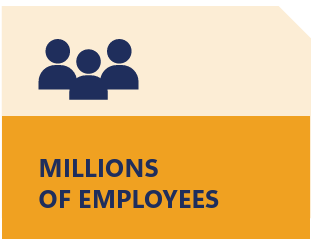Professional Services Council
2024 Annual Report
 Members and Friends:
Members and Friends:
2024 witnessed competing dynamics in the federal government contracting industry. The administration rushed to bring its initiatives to fruition, innovators designed improvements in systems and processes, and companies sought work in both legacy systems and new programs. As 2025 brings a new administration and a new Congress, these competing dynamics affect what we at PSC do for our member companies and executives throughout the year.
This Annual Report reflects our 2024 efforts and the corresponding results. I encourage you to read it and engage in those areas that matter to you.
For PSC member companies, we offer our sincere thanks for the support and invaluable contributions. Our achievements are fueled by the engagement of our members as together we identify and tackle challenges.
For those considering joining PSC, this report reflects the benefits of membership. Our goal is to support ways for government contractors to develop and deliver solutions that enhance efficiency, incorporate innovation, and improve effectiveness in government operations. Your participation will add to our collective success.
This report summarizes PSC’s efforts and achievements in 2024 and looks forward to the opportunities and challenges of 2025. We remain steadfastly committed to advocating on the issues that matter to our member companies and their government clients. In addition, we provide peerless market intelligence and policy insight, and we offer events and networking opportunities unlike any other in our industry.
Let’s look at some of our key 2024 accomplishments:
PSC Strategic Priorities
Pages 6-15 report on PSC’s continuing Strategic Priorities, starting with the basic tenet of promoting the value of the partnership between the federal government and its contractors. From comments on proposed procurement rules and other regulations to promoting technology modernization, PSC invests in these strategic priorities every day.
Policy
The Policy team is at the heart of our efforts to promote the value of contractors. PSC’s policy lines of effort cut across our five subordinate councils, three that are customer-facing and two that cut across the entire federal government. Learn more on pages 20-35, and for 2025, see PSC’s five areas of focus in the lines of effort on page 19.
Government Relations
PSC’s policy efforts go hand-in-hand with our government relations work. From testimony on technology and border security to supporting key provisions in legislation, PSC worked closely and successfully with Congress. See pages 10 and 18. In 2025, our goals with the 119th Congress will build on these successes.
Events and Conferences
PSC hosted eight major conferences in 2024: Acquisition, Annual, Defense, Development, FedHealth, Law Enforcement, Leadership Summit, and Vision Federal Market Forecast. They delved into government priorities and plans while giving members access to unparalleled networking and interaction with government customers. Check out pages 36-44, and plan now to attend the 2025 ones listed on page 45.
PSC hosted more than 100 separate events for member companies. See page 46 for a partial list, and for updated 2025 schedules and details, visit pscouncil.org/Events.
Thank you, Sponsors!
Our events and achievements rely on the support of our sponsors (page 46), and we thank them all. To see your company on next year’s list, contact sponsorship@pscouncil.org.
Updates and Resources
PSC provides valuable, unique resources to our members, ranging from the latest Executive Orders to government regulations and congressional legislation. Every member company employee can set up an account on pscouncil.org and:
- Subscribe to the PSC Daily Newsletter to stay abreast of industry news.
- Sign up for (and submit an article for) Service Contractor Magazine.
- Learn more about the PSC Foundation and the annual Vision process.
- Access resources such as the Vision Federal Market Forecast, Federal Business Scorecard, insightful reports, and our mobile app.
In the upcoming year, we look forward to continuing our partnership with you to help the federal government become a smarter customer and `better buyer.
Finally, I extend my deepest gratitude to the PSC staff for their dedication and hard work throughout 2024 and into 2025. Their commitment, tireless contributions, professionalism, and collaborative spirit are central to the success of our organization. My thanks to every one of them!
Yours most respectfully,
David J. Berteau President & CEO, PSC
PSC's mission is to provide unparalleled value to our members as the leading advocate and resource for the federal government contracting industry, tirelessly pursuing excellence and providing PSC member companies with:
Unrivaled Advocacy and Policy Leadership
Outstanding Market Intelligence and Policy Insights
Value-Added Executive Events and Networking
Branding and Thought Leadership
PSC Priorites
Promote and Show the Value of Government Contracting and Contractors
Help the Government Become a Smarter Customer and Better Buyer and Improve Acquisition Outcomes
Support Technology Modernization and Innovation through Contracts
Act to Support Workforces Needed to Meet Future Government Missions
Maintain PSC as a Value-Added Association for Its Members
Acquisition and Business Policy
Appropriations and Budget
Congress and Legislative Affairs
Cybersecurity
Ethics and Compliance (accounting, audits, reports)
Federal Health
Federal Law Enforcement
Workforce and Labor
Industrial Base and Competition
International Development & Foreign Assistance
Security Clearances and Public Trust
Small Business and Partnering
Supply Chain
Technology and Innovation
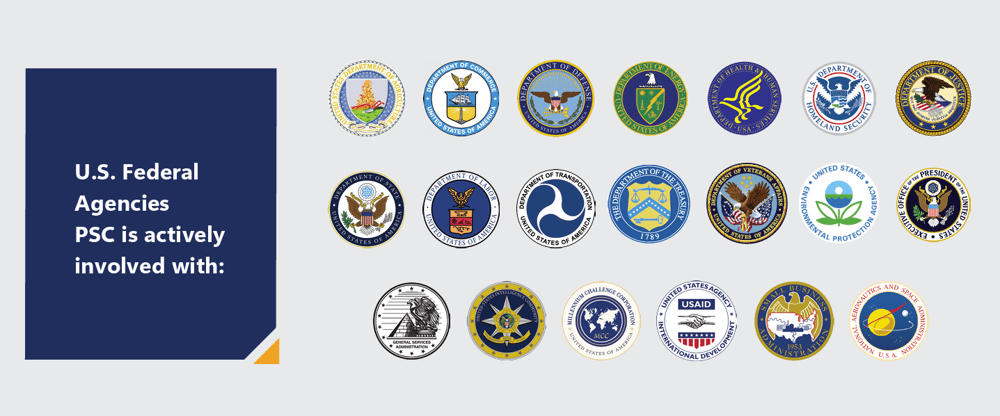
.png)
-
Showcased U.S. government contractors' invaluable contributions to the full range of federal missions. In addition to the private sector's work to support critical Ukrainian security and humanitarian needs, PSC highlighted contractors' effective, efficient solutions in research and development, sustainment, logistics, consulting, IT modernization, facilities management, and other critical operations that help ensure mission success across the U.S. Government. PSC led multi-association initiatives to focus U.S. efforts on advanced capabilities cooperation and collaboration within the Australia-UK-U.S. (AUKUS) Trilateral Security Partnership and tracked closely the potential impact of the U.S. Supreme Court's ruling in Loper Bright Enterprises v. Raimondo, which overturned a 1984 precedent (Chevron doctrine) by asserting the judiciary's primacy in interpreting ambiguous statutes.
-
Underscored the importance of lowering barriers to entry and supporting a healthy, diverse industrial base. Through in-depth discussions across defense and civilian agencies, PSC emphasized the need for support to small businesses, as well as those companies that had recently grown beyond their set-aside status and those companies that seek to partner with small businesses. Innovative solutions emanate from a variety of companies, including those commercial entities that may be considering whether to enter the federal marketplace; attracting new companies and sustaining the vitality of the existing industrial base are both critical to ensuring robust private sector support to federal missions.
-
Engaged frequently and substantively with U.S. Government officials on critical government contracting issues. In 2024, those issues included—but were not limited to—competition and partnering, artificial intelligence, intellectual property, supply chain, and compliance with a range of cybersecurity, sourcing, and labor requirements. This included hundreds of discussions held under the auspices of the PSC Foundation's Vision Federal Market Forecast process and conference.
-
Hosted a very successful "CIDC on the Hill" exhibition and published "American Development Companies: Addressing the Needs of a World in Crisis," a thought leadership compendium that showcased the global aspect of work performed by PSC members in partnership with U.S. Government agencies. These PSC efforts highlighted the critical work performed by government contractors to help achieve our nation's foreign policy and development goals.
-
Co-led the Council of Defense and Space Industry Associations (CODSIA) in quarterly meetings with FAR Council agencies, White House Office of Federal Procurement Policy, Defense Contract Management Agency, and Defense Contract Audit Agency to discuss industry-wide issues and concerns.
-
Participated in deep-dive discussions with the Government Accountability Office on industry members' experience with the Defense Innovation Unit, federal agencies' use of Defense Production Act authorities, incurred cost audits, and cost realism issues.

-
Submitted 40 sets of content-focused comments or letters to agencies regarding inter alia: acquisition data management; apprenticeship programs; artificial intelligence standards and applications; conflicts of interest; cybersecurity programs and requirements; AUKUS-related changes to International Traffic in Arms Regulations; financing support; pay equity and transparency; partnering; protection of controlled unclassified information; supply chain resilience; and suspension and debarment .
Among those comments, included observations and recommendations on the General Services Administration (GSA's) Alliant 3 and NASA's Solutions for Enterprise-wide Procurement (SEWP) VI government-wide acquisition contract vehicles and on GSA's Registered Apprenticeship Acquisition Strategic Guide.
-
Provided feedback on the Department of Defense's National Defense Industrial Strategy and associated implementation plan, urging attention to role played by companies that offer a range of defense services and solutions.
-
Presented a research paper, "Cost Realism: The Gap Between Price to Win and Cost to Perform" and moderated keynote remarks by the Assistant Secretary of Defense for Acquisition at the Naval Postgraduate School's 21st Annual Acquisition Research Symposium.
-
Organized and executed five Reverse Industry Days plus three industry-led training events that involved 1,500+ federal program and acquisition officials. Participating agencies included the Centers for Medicare and Medicaid Services, Department of Health and Human Services, Department of Homeland Security, Federal Aviation Administration, and USAID.
-
Assessed the web-based procurement forecasts for 70 federal agencies / components and published the 6th Annual PSC Federal Business Forecast Scorecard. In 2024, PSC found that the forecast quality is on par with those assessed in 2023, perhaps because many agencies were transitioning data to the government’s Acquisition Gateway, an on-line resource managed by GSA. Noting that this Gateway contains all of PSC’s 15 Key Attributes to a Successful Business Forecast, PSC encouraged agencies to work toward improved accuracy and data maintenance within this tool. Of note, the Department of Labor and USAID received recognition as models for agency success in forecasting.
-
Facilitated targeted engagements—some of which involved multiple associations—with multiple agencies on AUKUS Pillar II advanced capabilities, intellectual property, Other Transaction authority, CRADAs, workforce, and cost realism issues.

-
Offered expert testimony on "Smart Investments: Technology's Role in a Multi-Layered Border Security Strategy" before a joint hearing of the House of Representatives Subcommittee on Border Security and Enforcement and Subcommittee on Oversight, Investigations, and Accountability. PSC emphasized the need to leverage cutting-edge technologies through more flexible contracting procedures and to build necessary workforces that can achieve effective outcomes.
-
Advocated for increased flexibilities in acquisition tools so federal agencies can better access emerging technologies at the speed of relevance.
-
Established an active AI Working Group that produced several issue papers on the use of AI in federal contracting, workforce implications, and "guardrails" for responsible AI use. This monthly forum featured government speakers and served as a clearinghouse in which PSC member companies could freely exchange AI-related ideas.
-
Submitted detailed comments to Congress and multiple agencies (e.g., FAR Council, DoD Office of Strategic Capital, federal Chief Information Officers, National Institute of Standards and Technology, Office of the National Cyber Director) on artificial intelligence standards and risk management, financial support for emerging technologies, cybersecurity programs and requirements, cyber workforce, prohibition on certain semiconductor products and services, protection of controlled unclassified information, and technology modernization.
-
Maintained keen focus on harmonization of cybersecurity requirements, ranging from DoD's latest Cybersecurity Maturity Model Certification (CMMC) program and contract language to DHS's cybersecurity self-attestation form, from cyber incident reporting to forensic analysis after an incident has occurred.
-
Maintained PSC's strong advocacy and leadership on IT modernization policies, programs, and resources with executive and legislative branch officials.

-
Engaged regularly and substantively with U.S. Government officials on workforce issues of highest significance to government contractors. Such issues included the ability of private sector companies to hire, train, promote, and retain those skilled workers upon whom government contractors rely in order to bid, win, and perform on services and solutions contracts. Return-to-workplace policies, pay equity and transparency, non-disclosure agreements, and non-compete clauses remained top of mind throughout industry in 2024.
In addition, submitted detailed comments to the Occupational Safety and Health Administration on heat injury and illness prevention. Workers are the backbone of all PSC member companies, and these comments served to support safer working conditions for all.
-
Coordinated interactive sessions with the White House's Performance Accountability Council Program Management Office and companies to discuss security clearances, public trust, and fitness requirements.
-
Led in-depth discussions with GSA, White House, and other U.S. Government officials on improvements to apprenticeship programs, considerations for labor category and rate adjustments, and support to pipelines specifically pertaining to cybersecurity.
-
Provided government contractors' perspectives and insights on U.S. Government labor statutes, regulations, and policies that impact companies' access to, and retention of, the skilled workforce needed to achieve federal missions. For example, PSC comments on pay equity and transparency issues highlighted the unique elements of the federal contractor workforce and the need to retain key personnel from proposal submission, to contract award, to performance.
-
Spoke frequently with federal officials about cost realism — i.e., the price to win vs. the cost to perform on contracts—and the need to move from lowest-price technically-acceptable contracts, especially when labor rate escalation in multi-year contracts that fail to keep pace with inflation.

-
Maintained a strong PSC membership base with a 91% renewal rate, while achieving significant growth in new memberships, adding 74 new members, and generating the highest revenue from member recruitment.
-
Increased the Annual Partnerships Initiative by 15%, driving growth and strengthening partnerships.
-
Delivered over 100 successful events and conferences that exceeded PSC's budget goals, ensuring high-quality content and offering flexible formats to accommodate varying comfort levels for both speakers and attendees.
-
Contributed to PSC’s thought leadership through expanded media outreach and the production of valuable content for members and government stakeholders.
-
Enhanced database and website functionality, improving system performance, response time, and user experience.
-
Strengthened member engagement with over 150 briefings and the distribution of more than 2,200 quarterly reports.
-
Amplified the visibility of PSC’s advocacy efforts, championing the industry’s interests.
-
Improved communication with members on key internal issues, as well as critical government guidance and regulatory requirements.
-
Expanded media partnerships and alliances, generating over $1,000,000 in in-kind marketing value.
Government Relations Spotlight
Successfully advocated for provisions to be included or amended in the fiscal year (FY) 2025 National Defense Authorization Act (NDAA), including:
- Extending prohibition on requiring contractors to provide information on greenhouse gas emissions
- Extending authority to modify contracts based on impacts of inflation
- Establishing a pilot program for access to shared classified information infrastructure
- Supported a provision to incentive contractors to proactively identify Chinese parts/components in their supply chains
Engaged with Congressional committee staff to advocate for security clearance legislative reform along with INSA, AIA, and NDIA which led to inclusion of appropriations and authorization language to increase shared SCIF space.
Provided feedback to Congress on the impact of consistent continuing resolutions and a prolonged government shutdown to federal contractors supporting government operations.
Hosted successful monthly virtual PSC Government Affairs Committee meetings with engagement from key congressional staffers from:
- Senate Homeland Security and Governmental Affairs Committee
- House Foreign Affairs Committee
- House Ways and Means Committee
- House Select Committee on China.
Provided opportunities to member companies to comment and edit legislation across a number of Congressional committees and topics to include artificial intelligence in procurement, Information Technology Procurement, AUKUS pillar two, and a number of reauthorizations prioritized by members to include the Countering Weapons of Mass Destruction office.
Wrote letter to Congressional leadership supporting the R&D tax credit for businesses
PSC Policy Lines of Effort
- Refocused its Cost, Accounting, and Administration LoE as "Cost of Doing Business with the Federal Government"
- Added a specific reference to "technology" in a "Technology, Innovation, and Modernization" LoE
- Reinvigorated PSC's General Counsels Committee.
Therefore, for 2024, each PSC comment submission on agency or regulatory actions and each PSC letter to a federal agency can be mapped to the following LoEs:
Cost of Doing Business with the Federal Government
Lower Barriers to Entry / Promotion of Competition
Workforce
Technology, Innovation, and Modernization
Supply Chain and Logistics
PSC Council Spotlights

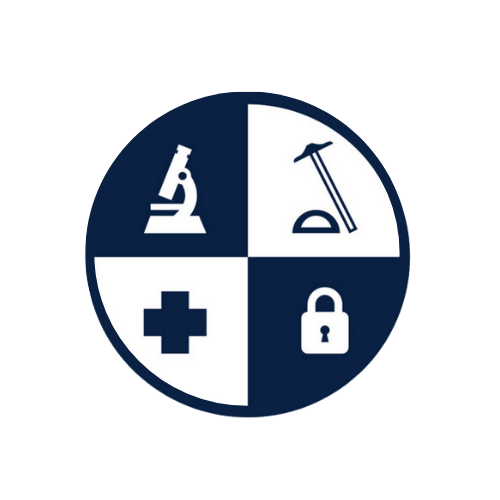
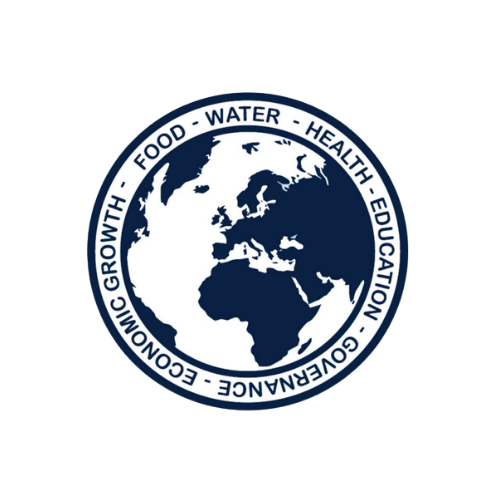



 The Acquisition and Business Policy Council (ABPC) is the principal body for developing PSC’s policy positions and mobilizing action on major contracting initiatives across the U.S. Federal Government, including but not limited to White House initiatives that impact contracts and contractors, FAR Council and other rulemaking activities, and government-wide acquisition contract vehicle processes. ABPC fosters productive dialogue among stakeholders, whether federal civilian, military, industry, or other officials, and strives to improve federal acquisition outcomes. This Council hosts regular committee and working group meetings, timely information exchanges, and relevant programming to benefit both government and PSC member company officials. ABPC also offers substantive feedback in response to formal requests for comments (e.g., in the Federal Register, sam.gov, or other sources), striving to underscore the value of government contracting and contractors and to support policy, process, and program improvements across the federal government.
The Acquisition and Business Policy Council (ABPC) is the principal body for developing PSC’s policy positions and mobilizing action on major contracting initiatives across the U.S. Federal Government, including but not limited to White House initiatives that impact contracts and contractors, FAR Council and other rulemaking activities, and government-wide acquisition contract vehicle processes. ABPC fosters productive dialogue among stakeholders, whether federal civilian, military, industry, or other officials, and strives to improve federal acquisition outcomes. This Council hosts regular committee and working group meetings, timely information exchanges, and relevant programming to benefit both government and PSC member company officials. ABPC also offers substantive feedback in response to formal requests for comments (e.g., in the Federal Register, sam.gov, or other sources), striving to underscore the value of government contracting and contractors and to support policy, process, and program improvements across the federal government.
Key Achievements
Submitted 40 sets of comments, both as an individual association or as an integral member of the multi-association Council of Defense and Space Industry Associations (CODSIA). More than 20 of these comment documents pertained directly to federal acquisition policy, such as:
- Pay equity and transparency
- Suspension and debarment
- Sourcing of semiconductor / chips products and services
- FAR Part 40, Information Security and Supply Chain Security
- Heat injury and illness prevention
- Cost accounting standards on indefinite delivery vehicles
- Sharing of contractor performance information
- Apprenticeship programs
Commented on Small Business Administration Activities related to:
- Increasing Small Business Participation on Multiple Award Copntracts
- Allowable teaming and partnering
- Re-certification and self-certification requirements
- Size Standards Methodology
Provided feedback on key GWAC solicitations, such as GSA's Alliant 3 and NASA's SEWP VI
Organized and held PSC's 2024 Federal Acquisition Conference, bringing together almost 200 attendees with speakers from across the government (Air Force, Commerce, DHS, GSA, HHS, NASA, Treasury) to discuss keeping pace with innovations, trends in acquisition and "mythbusting"
Released PSC's 6th Annual Federal Business Forecast Scorecard, which assessed 70 federal agencies' and offices' web-based procurement forecasts
Committees/Working Groups
Contract Finance and Cash Flow Committee
Human Resources and Labor Policy Committee to be reinvigorated in 2024
Mid-Sized Company Working Group
FOCI Working Group
2025 Agenda
- Develop and execute a targeted approach to engaging with new policy and acquisition leaders in the executive branch-- with a new toward supporting competition and business growth
- Partner with administration and congressional leaders on efficiency and effectiveness in pursuit of federal mission
- Identify and help promulgate best practices in contracting for both government-wide and agency-specific opportunities
- Focus on support to workforces needed to meet future government missions (e.g., labor policies and practices)
- Release a comprehensive 2025 Biennial Acquisition Policy Survey that captures federal acquisition executives' assessments of the foreseeable federal marketplace and business environment
2024 Executive Advisory Board
- AL Burman -- Jefferson Consulting
- MaryEllen Fraser -- LMCO
- Kitty Klaus -- Easy Dynamics
- Jeff Parsons -- AECOM
- John Roman -- ECS
PSC Staff
- Stephanie Kostro, Executive Vice President, Policy - kostro@pscouncil.org
- Sebastian Herrick, Director, Procurement Policy - herrick@pscouncil.org
Featured Reports

 The Civilian Agencies Council (CAC) focuses on acquisition policies and strategies of the full range of civilian agencies, including but not limited to the departments of Energy (DoE), Health and Human Services (HHS), Homeland Security (DHS), and Veterans Affairs (VA). The CAC's programs inform members about civilian agencies’ policies and initiatives, serving as an interactive forum to improve dialogue, transparency, and information exchanges between PSC members and federal government officials. CAC priorities include:
The Civilian Agencies Council (CAC) focuses on acquisition policies and strategies of the full range of civilian agencies, including but not limited to the departments of Energy (DoE), Health and Human Services (HHS), Homeland Security (DHS), and Veterans Affairs (VA). The CAC's programs inform members about civilian agencies’ policies and initiatives, serving as an interactive forum to improve dialogue, transparency, and information exchanges between PSC members and federal government officials. CAC priorities include:
- Serve as the primary forum to address impacts of acquisition policies, business practices, and strategies on federal civilian agencies' markets.
- Share private sector expertise and knowledge to improve business practices, models of engagement, technology acquisition, culture, and management policies in support of government mission outcomes and citizen services.
- Build strong, collaborative relationships between government officials and the PSC member community.
- Support efforts to reduce government practices that stifle innovation, competition, speed, and/or efficiency in procurements.
- Position members to understand the future direction of civilian agencies’ marketplaces
Key Achievements
- Shared industry perspectives with key decision-makers on important matters affecting contractors and the competitive landscape including acquisition vehicles, cybersecurity compliance, labor harmony clauses, supply chain, technology's role in border security, small business goals and proposed rules, and evaluation of teaming/joint ventures.
- Facilitated six industry led training programs for more than 1,500+ program and acquisition officials across DHS, CMS, HHS, and the Federal Aviation Administration (FAA). Industry offered perspectives on requirements and evaluation criteria in best value procurements; forecasts; market research process; and ways in which communication and engagement with industry can attract investment, incentivize competition, and improve contract outcomes.
- Organized and held PSC's 2024 Federal Law Enforcement Conference, bringing together 250+ industry and government officials. Government speakers hailed from CBP, DEA, FBI, FLETC, TSA, Border Patrol, Homeland Security Investigations, and the U.S Marshals Service to discuss challenges associated with an expanding law enforcement mission; plans for using AI and other emerging technologies; and the law enforcement procurement landscape
- Organized and held PSC's 2024 FedHealth Conference, bringing together 200+ attendees with speakers from across the VA and key divisions of HHS (i.e., CDC, FDA, ARPA-H, ASPR, HRSA, SAMHSA, Office of Acquisitions) to discuss workforce issues, use-cases and plans for AI, and FedHealth procurement trends.
- Built relationships and provided business intelligence, connecting PSC members with officials from DHS (e.g., FEMA); HHS (e.g., NITAAC, FDA, Office of Acquisitions), Energy (Office of the CIO), Veterans Affairs (Technology Acquisition Center, OALC); FAA through Task Force meetings and other events.
Task Forces
2025 Agenda
- Understand the shifting policy priorities and initiatives of the next Administration and what they mean for government contractors in the civilian marketplace.
- Build relationships among PSC member companies with agency leadership in the new Administration.
- Emphasize to federal civilian agencies the important partnership role of government contractors in helping achieve Administration priorities in areas such as: digital transformation and IT modernization; customer experience; cybersecurity; data science; AI and other emerging technologies; and workforce training.
- Engage with government decision-makers on the development of key contract vehicles that promote competition and support acquisition outcomes.
- Lead Reverse Industry Day sessions to improve agency officials' understanding of industry decision-making factors and to underscore the value of early and consistent communication.
- Continue frequent engagement and information sharing with DoE, HHS, DHS, VA, and other relevant agencies through task force meetings and programs.
- Ensure the 2025 Federal Law Enforcement and FedHealth Conferences are forums for value-added discussion on critical mission topics.
2024 Executive Advisory Board
- Paul J. Anninos -- Abt Associates
- Stephen Deitz -- ManTech
- Larry Grossman -- TetraTech
- Andrea McCarthy -- HARP
- Francis Moody -- Serco
- Todd Pantezzi -- Credence Management Solutions
- Jeff Polyak -- CGI Federal
- LaJuanna Russell -- Business Management Associates
- Dave Stahlman -- Arc Aspicio
- Kathy Taylor -- DRT Strategies
- Elaine Turville -- Accenture Federal Services
- Kirste Webb -- Clinch River Services
- Jennifer Welham -- ICF
PSC Staff
- Krista Sweet, Vice President, Civilian Agencies - ksweet@pscouncil.org

 The Council of International Development Companies (CIDC) meets monthly to create a dynamic, sustainable engagement platform for U.S. development companies to pursue thought leadership and high-level dialogue with the U.S. Agency for International Development (USAID), Department of State, Millennium Challenge Corporation (MCC), President's Emergency Plan For AIDS Relief (PEPFAR), Development Finance Corporation, and other foreign assistance organizations. CIDC aims to educate audiences on the vital role international development companies play in achieving accountable, transparent and sustainable development results in support of U.S. national security, economic, and humanitarian goals overseas.
The Council of International Development Companies (CIDC) meets monthly to create a dynamic, sustainable engagement platform for U.S. development companies to pursue thought leadership and high-level dialogue with the U.S. Agency for International Development (USAID), Department of State, Millennium Challenge Corporation (MCC), President's Emergency Plan For AIDS Relief (PEPFAR), Development Finance Corporation, and other foreign assistance organizations. CIDC aims to educate audiences on the vital role international development companies play in achieving accountable, transparent and sustainable development results in support of U.S. national security, economic, and humanitarian goals overseas.
Key Achievements
- Facilitated regular, high-level CIDC member engagement with senior federal foreign assistance officials on a wide range of issues, including development strategy, innovation, operations, and localization.
- Hosted key federal officials at monthly meeting speakers, such as:
- USAID Procurement Executive
- MCC Deputy Chief of Staff
- USAID Chief Economist
- Published two compendiums of CIDC members' recent contributions to U.S. global foreign policy objectives – one published in April during PSC's "CIDC on the Hill" event, followed by a second focused on CIDC implementation of programs focused on achieving the United Nations Stategic Development Goals – released at the start of the UN General Assembly in October.
- Worked with Congressional officials to revise legislative language, which would have targeted only contractors by prohibiting U.S. development funding to entities with $100+ million net revenue or for which the U.S. Government is responsible for more than 40 percent of revenue. This language was rescinded.
- Planned and hosted PSC's fourth "CIDC on the Hill" in-person event, bringing together and facilitating dialogue among PSC member companies and congressional members and staff.
- Planned and hosted PSC's 12th Annual Development Conference, achieving record attendance and sponsorship levels. The CEOs of both the Millenium Challenge Corporation and Development Finance Corporation provided keynotes, with a panel dedicated to Small Businesses and a presentation by the Australian foreign assistance agency
Task Forces/Working Groups
2025 Agenda
- Engage with new administration officials throughout the U.S. foreign assistance structure, including USAID, Millenium Challenge Corporation, Development Finance Corporation, Department of State, and others as appropriate to highlight CIDC members' capabilities, their vital role in American foreign policy, and the attendant value to the taxpayer.
- Work with new Congressional officials—in both the U.S. Senate and House of Representatives—to increase understanding of, and appreciation for, CIDC member issues and concerns.
- Identify, analyze, and make recommendations regarding the impact of policies, processes, statutes, and regulations related to new administration priorities (e.g., funding and personnel adjustments, policy changes that may impact federal contracts).
2024 Executive Advisory Board
Chair: Mark Johnson -- TetraTech International Development Services
Vice Chair: Torge Gerlach, DT Global
- John Gastright -- Amentum
- Sue Chodakewitz -- CADMUS
- Anna Slother -- Chemonics
- Leland Kruvant -- Creative
- Jeremy Kanthor -- DAI
- Kathleen O'Dell -- Deloitte
- David Snelbecker -- IDG
- Ricardo Michel -- Palladium
- Betsy Bassan -- Panagora Group
- Shiro Gnanaselvam -- Social Impact
- Mark Johnson -- TetraTech
PSC Staff
- Paul Foldi, Vice President, International Development Affairs - foldi@pscouncil.org
Featured Reports
American Development Companies: Addressing the Needs of a World in Crisis
https://www.pscouncil.org/AmericanDevelopment
American Development Companies: Addressing the United Nations Sustainable Development Goals

 The Defense and Intelligence Council (D&IC) leads PSC’s efforts with the intelligence community (IC), Office of the Secretary of Defense, military departments, and defense agencies. D&IC is the principal forum for PSC members to engage with government decision-makers and provide input on acquisition policies and programs within the defense and intelligence spaces. This Council aims to: facilitate productive dialogue between defense and intelligence officials and the industry partners that support them; improve the Department of Defense (DoD) and IC acquisition environment by reducing procurement cycle times, improving requirements processes, and dissuading inappropriate use of Lowest Price, Technically Acceptable (LPTA) evaluations and labor rate tripwires; shape business opportunities for a healthy defense industrial base; and promote the services industry’s contributions and value through PSC thought leadership (e.g., op-eds, speaking engagements, congressional testimony, etc.)
The Defense and Intelligence Council (D&IC) leads PSC’s efforts with the intelligence community (IC), Office of the Secretary of Defense, military departments, and defense agencies. D&IC is the principal forum for PSC members to engage with government decision-makers and provide input on acquisition policies and programs within the defense and intelligence spaces. This Council aims to: facilitate productive dialogue between defense and intelligence officials and the industry partners that support them; improve the Department of Defense (DoD) and IC acquisition environment by reducing procurement cycle times, improving requirements processes, and dissuading inappropriate use of Lowest Price, Technically Acceptable (LPTA) evaluations and labor rate tripwires; shape business opportunities for a healthy defense industrial base; and promote the services industry’s contributions and value through PSC thought leadership (e.g., op-eds, speaking engagements, congressional testimony, etc.)
Key Achievements
- Planned and hosted PSC's annual Defense Conference, including keynote addresses from the Acting Deputy Under Secretary of Defense for Acquisition & Sustainment, as well as remarks from the Principal Deputy Assistant Secretary of the Army for Acquisition, Logistics and Technology. Panel topics included navigating federal cybersecurity regulations, building a resilient federal workforce, and readiness challenges related to ongoing global initiatives (e.g., Ukraine, AUKUS, and the Indo-Pacific).
- Facilitated sessions involving senior defense officials in industrial base health and resilience, increased opportunities for engagement and partnership, and specific topics such as intellectual property, R&D efforts, and non-FAR-based opportunities.
- Supported engagement with the DoD Chief Digital and Artificial Intelligence Office on the Open DAGIR ecosystem and its role in integrating data platforms, tools, and applications.
- Participated in monthly engagements with DoD's Office of Industrial Base Policy; these sessions featured DoD subject matter experts on topics such as the AUKUS trilateral security partnership, Defense Innovation Unit, CFIUS and DoD economic security and strategic engagement.
- Participated in quarterly CODSIA meetings with DoD acquisition professionals; these sessions reflected interactive dialogue between PSC and DoD components and provided a central channel of communications for improving industry-wide consideration of the many policies, regulations, implementation challenges, procedures, and questions involved in federal procurement actions. opportunities.
- Co-hosted a PSC webinar through PSC’s CMMC Task Force and PSC’s Cybersecurity Working Group on recent cyber rulemaking and potential impacts on government contractors.
- Provided input on several rulemaking activities, such as the National Institute of Standards and Technology (NIST) SP 800-171, Rev. 3 (Final Public Draft), DoD’s National Industrial Security Program Operating Manual, and DFARS proposed rules on the definition of material weakness and preventing conflicts of interest.
Committees
2025 Agenda
- Facilitate a productive dialogue between DoD and IC officials and the industry partners that support them. One focus will be to suggest improvements to acquisition approaches as early as possible in the cycle to help set up opportunities for success. Another will be to support security clearance reform, as well as effective implementation of any cybersecurity and information-handling requirements.
- Help support the development of workforces needed to meet foreseeable DoD and IC acquisition requirements, including contracting workforces
- Demonstrate industry’s contribution and value to the defense and intelligence missions sets through PSC thought leadership (e.g., issue papers, op-eds, speaking engagements, testimony).
- Refresh D&IC’s focus on critical, timely defense and intelligence issues and make best use of the D&IC committees to address the focus areas.
2024 Executive Advisory Board
- Waymon Armstrong -- Engineering & Computer Solutions (ECS)
- Chris Bahret -- VTG
- Mark Fialkowski -- Parsons
- Tina Wilson -- T47 International
PSC Staff
- Stephanie Kostro, Executive Vice President, Policy - kostro@pscouncil.org
- Lauren C. Ayers, Vice President, Defense and Intelligence

 The Technology and Innovation (Tech & Innovation) Council is PSC’s principal arm for developing PSC’s positions and taking action on crosscutting technology issues, from cybersecurity and cloud computing to artificial intelligence (AI) tools and solutions and “as-a-service” acquisitions. With technology issues expanding throughout the professional services sector in support of federal missions, the Tech & Innovation Council helps PSC members better navigate the market and policy landscape, leveraging targeted engagements with federal officials, thoughtful information-exchanges, and development of issue papers, comments, and reports.
The Technology and Innovation (Tech & Innovation) Council is PSC’s principal arm for developing PSC’s positions and taking action on crosscutting technology issues, from cybersecurity and cloud computing to artificial intelligence (AI) tools and solutions and “as-a-service” acquisitions. With technology issues expanding throughout the professional services sector in support of federal missions, the Tech & Innovation Council helps PSC members better navigate the market and policy landscape, leveraging targeted engagements with federal officials, thoughtful information-exchanges, and development of issue papers, comments, and reports.
Key Achievements
- Led monthly meetings of PSC’s AI Roundtable, a sub-group of the Emerging Technologies Working Group. Based on PSC member feedback regarding key AI issues in federal requirements, acquisition tools, and use of commercial AI solutions, PSC drafted and published several issue papers that provided recommendations to government officials regarding the management of AI in the federal context and how AI should be used in federal acquisition processes.
- Hosted interactive meetings with GSA’s Director for the AI Center of Excellence and with Senate Homeland Security and Governmental Affairs Committee staffers on draft AI legislation. These sessions facilitated PSC member engagement with influential officials on AI-related opportunities and challenges in the federal marketplace.
- Co-facilitated a meeting with the DoDChief Digital and Artificial Intelligence Office on the Open DAGIR ecosystem and its role in integrating data platforms, tools, and applications.
- Co-hosted an Emerging Technologies Working Group meeting with Department of Energy (DoE) Deputy CIOs for Resource Management and Enterprise IT Policy Governance. Discussion centered on DoE’s strategic efforts to deliver business value to their customers through emerging technologies, IT policy, management, and governance.
- Participated in a Georgetown University roundtable on the use of AI by the federal government and provided industry perspectives and recommendations.
- Submitted comments and recommendations on DoD's Cybersecurity Maturity Model Certification (CMMC) 2.0 Program and related CMMC 2.0 contracting requirements, Department of Homeland Security's Cyber Incident Reporting for Critical Infrastructure Act reporting requirements, the National Institute of Standards and Technology (NIST) AI Risk Management Framework and global AI standards, and FAR Council rules on cybersecurity requirements and incident reporting.
Working Groups/Roundtables
Acquisition Approaches Working Group
Emerging Technologies Working Group, including a focused group on artificial intelligence
2025 Agenda
- Shape procurement approaches and opportunities to facilitate federal government access to innovation.
- Shape federal government policies to improve technology acquisition efforts, including but not limited to AI, semiconductors and microelectronics, technology modernization, Zero Trust, and digital transformation.
- Facilitate mutually beneficial discussions between U.S. Government and private sector entities on cybersecurity and support common-sense efforts to leverage commercial best practices and minimize potentially burdensome reporting requirements.
- Increase the familiarity and understanding of key U.S. Government legislative and executive branch officials on contracting, regulatory, legislative, business process, and business development issues of importance to Tech & Innovation Council members.
2024 Executive Advisory Board
- John Cyrus -- IBM
- John George -- Leidos
- Tim Gilday -- General Dynamics
- Joel Hinzman -- Oracle
- Simon Szykman -- Maximus
- Brian Thamm -- Sophinea
PSC Staff
- Stephanie Kostro, Executive Vice President, Policy - kostro@pscouncil.org
- Christian Larsen, Senior Associate, Public Policy - larsen@pscouncil.org
PSC 2024 Annual Conference

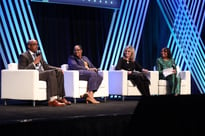
The PSC Annual Conference continues to be the premier government contracting conference. Our attendees were joined by government and industry leaders that addressed current issues facing the government professional and technology services industry. They gained actionable insights over three days of networking and informational sessions.
434 INDUSTRY & GOVERNMENT EXECUTIVES
Featured Speakers:
-
Spencer Fisher, Chief Counsel, Cybersecurity and Infrastructure Security (CISA)
-
The Honorable Sue Gordon, Former Principal Deputy Director of National Intelligence (PDDNI)
-
The Honorable Juan Zarate, Chairman of the Center on Economic and Financial Power, Foundation for Defense of Democracies
Development Conference

PSC’s Council of International Development Companies had its 12th Annual Development Conference on December 10, 2024. This half-day conference explored the factors shaping the evolution of international capacity building, related shared government and international development company (IDC) objectives, and the roles and contributions of IDCs supporting U.S. government agencies’ critical missions.

225 INDUSTRY & GOVERNMENT EXECUTIVES
Keynote Speakers
-
Alice Albright, CEO, Millennium Challenge Corporation (MCC)
-
Scott Nathan, CEO, U.S. International Development Finance Corporation (DFC)
-
Michele Sumilas, Acting Deputy Administrator, USAID
-
Dean Karlan, Chief Economist, USAID
FedHealth Conference

The 8th annual PSC Federal Health Conference brought senior executives from across industry and government together to discuss critical industry policy and acquisition priorities in civilian and military health. Speakers from HHS, VA, and DoD needs and challenges, enabling industry to better determine where the federal health market is headed. This half-day conference was an opportunity to hear ideas from senior government and industry leaders in an extensive dialogue on federal health agencies, future policy and procurement trends and their implications on their company.

232 INDUSTRY & GOVERNMENT EXECUTIVES
Keynote Speaker
-
Arlene Joyner, Deputy Assistant Secretary and Director, Office of Industrial Base Management and Supply Chain, HHS Administration for Strategic Preparedness and Response
Defense Conference

The PSC Defense Conference brought together senior executives across the Department of Defense and industry to discuss current initiatives aimed at accelerating innovation and delivering capabilities to the Future Force.

123 INDUSTRY & GOVERNMENT EXECUTIVES
Keynote Speakers
-
Young Bang, Principal Deputy Assistant Secretary of the Army for Acquisition, Logistics and Technology, U.S. Army
-
The Honorable Deborah G. Rosenblum, Acting Deputy Under Secretary of Defense for Acquisition & Sustainment, Department of Defense
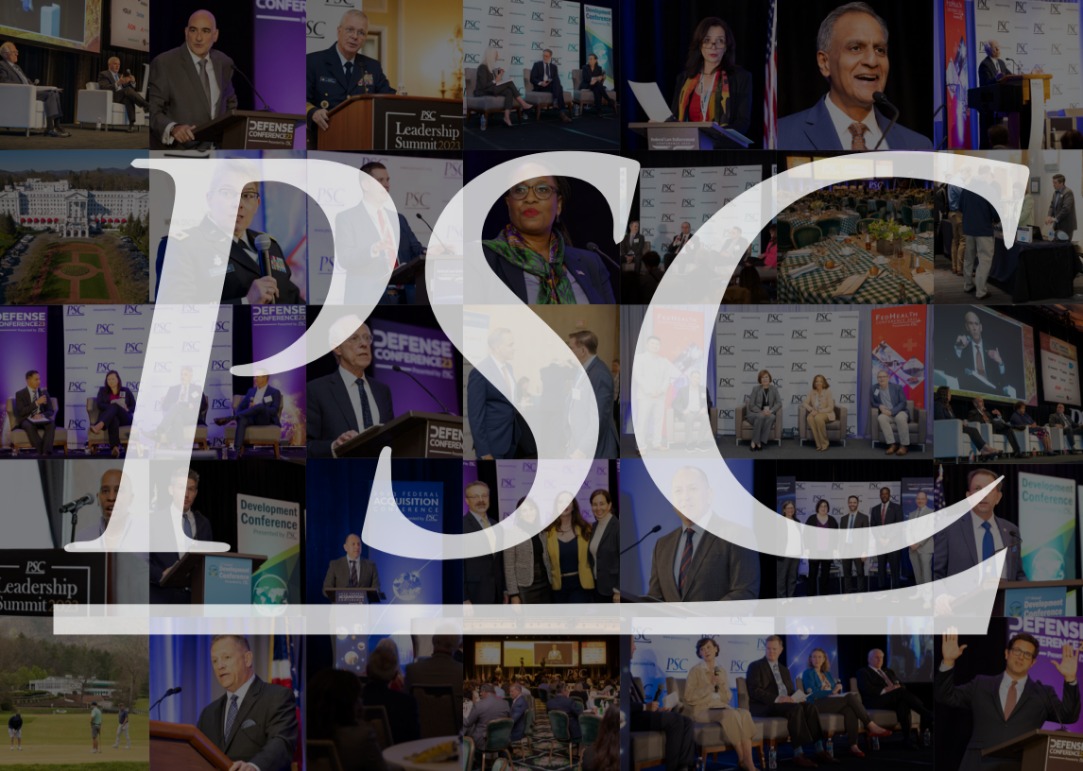
Vision 2024 Federal Market Forecast Conference

Presented by the PSC Foundation, Vision Federal Market Forecast provides a compilation of more than 20 reports that provide in-depth analysis of the defense, civilian, and federal IT markets. The reports were a year-long culmination of research and non-attribution discussions with 400+ government leaders, think tank experts, Congressional staff and Wall street analysts conducted by a vetted and trained industry. The Vision Forecast is the only non-profit reporting of the defense, civilian, and federal IT markets. It is presented and organized by the PSC Foundation.

The PSC Vision program is driven by industry volunteers meeting with a wide range of industry experts.
21 Study teams covering Defense, Civilian and Government-wide topics
Over 450 industry volunteers, representing 175 federal contracting companies, contributed to this year's process
400 discussions held across the federal government
334 INDUSTRY & GOVERNMENT EXECUTIVES
Featured Speakers:
-
The Honorable Mike McCord, Under Secretary of Defense (Comptroller)/Chief Financial Officer, Department of Defense
-
Rep. Rob Wittman, U.S. Representative for Virginia's 1st Congressional District
Leadership Summit 2024

The PSC Leadership Summit is an exclusive, invitation-only gathering of federal contracting executives that provides high-level networking and dynamic forums that helped set the PSC policy agenda for the year ahead. The Summit was comprised of the PSC Board of Directors and C-suite member executives. Leaders received closed-door updates from PSC executives, heard from high-ranking government officials, and provided feedback on issues that matter most to federal contracting.

66 INDUSTRY EXECUTIVES
Keynote Speakers
-
David Wasserman, Senior Election Analyst, The Cook Political Report with Amy Walter and NBC Contributor
-
VADM Frank Morley, USN, Principal Military Deputy Assistant Secretary of the Navy (Research, Development and Acquisition), U.S. Department of the Navy
-
Daniel Werfel, IRS Commissioner
-
Andy Bauer, Vice President and Regional Executive, Federal Reserve Bank of Richmond
Federal Acquisition Conference

On June 20, Acquisition leaders from across the government agencies discussed key emerging acquisition trends and initiatives in their respective organizations, as well as those with government-wide impacts. This was a great conference for business development, proposal development, and contracts compliance officials within industry.

158 INDUSTRY & GOVERNMENT EXECUTIVES
Keynote Speakers
-
Honorable Frank Kendall, Secretary of the Air Force
-
Nicole Evans, Deputy Assistant Secretary for Acquisition, Department of the Treasury
Federal Law Conference

The PSC Federal Law Enforcement Conference brought senior executives from across industry and government together to discuss key law enforcement initiatives. Given the administration’s focus on law enforcement and security, this was an opportunity for industry to engage with key government executives on law enforcement challenges. Speakers from DHS, DOJ, and other law enforcement agencies discussed their priorities and industry leaders discussed where the market is headed.

260 INDUSTRY & GOVERNMENT EXECUTIVES
Keynote Speakers
-
Johnnie Sharp, Assistant Director, IT Infrastructure Division, FBI
-
Carry Huffman, Director, FLETC
-
Jason Owens, Chief, U.S. Border Control
-
Leadership Summit
Feb. 2-3 | The St. Regis in Washington, DC
-
Federal Law Enforcement Conference
Feb. 20 | Westin Arlington Gateway & Virtual
-
Annual Conference
April 27-29 | The Greenbrier in West Virginia
-
FedHealth Conference
May 22 | Bethesda Marriott Conference Center & Virtual
-
Federal Acquisition Conference
June 5 | Westin Arlington Gateway & Virtual
-
Defense Conference
Oct. 9 | Westin Arlington Gateway & Virtual
-
Development Conference
Oct. 30 | Westin Arlington Gateway & Virtual
-
Vision Federal Market Forecast Conference
Dec. 1-2 | Westin Arlington Gateway & Virtual
-
December Board & Members Meeting & Holiday Reception
Dec. 10 | Westin Arlington Gateway
January 18 – CIDC meeting with Michele Sumilas, Assistant to the Administrator in the Bureau for Planning, Learning and Resource Management, USAID
February 2 – Government Affairs Committee Meeting with Staff from the Selectlect Committee on Strategic Competition Between the United States and the Chinese Communist Party
February 7 – CIDC Meeting with Alain Borghijs, Deputy Representative in the North American Office of the Asian Development Bank
February 15 – CIDC Meeting with USAID Senior Procurement Executive Jami Rodgers
March 1 – GAC with Mimi Bair, Legislative Director for Chairman Jodey Arrington and Jesse Mahan, Tax Policy Advisor for Senator James Lankford
March 5 – PSC Member Forum with Senator Mark Warner (VA)
March 21 – PSC CIDC Meeting with Katie Stohs, Chief of Compliance Division, Crista Wise, Ombudsman, and Roman Napoli, Deputy Assistant Administrator, USAID
April 5 – GAC Meeting with the House Foreign Affairs Committee Staff
April 16 – GSA Subcontracting Workshop with Helena Koch, GSA Small Business Administration Officer
April 16 – FAA Reverse Industry Day
April 23 – USAID Ukraine Update Briefing with Ambassador Erin Mckee and Mark Simakovsky, DAA of USAID
April 30 – FY 2024 to FY 2025 Department of Defense S&T budget Priorities Webinar
May 3 – GAC Meeting with Yvette Wissman, Director of Coalitions, Majority Staff at the House Ways and Means Committee
May 15 – HHS Task Force with Brian Goodger, Director of NITAAC
June 7 – GAC Meeting with Dennis Wischmeier, Minority Staff Member, Senate Select Committee on Intelligence
June 26 – HSTF Meeting with Eric Leckey, Associate Administrator, Federal Emergency Management Administration Mission Support
June 27 - PSC Meeting with Exodie C. Roe, III, Executive Administrator of GSA OSDBU Regarding Contract Opportunities and Barriers
June 28 – AI Roundtable with Nathan Manzotti, Director of GSA's AI & Data Analytics Centers of Excellence
July 30 - VA Task Force Meeting with Jeffrey C. Neill, Associate Executive Director of the Technology Acquisition Center, Department of Veterans Affairs
July 31 – CMS Reverse Industry Day
August 20 – Overturning Chevron Deference: Impacts on the Government Contracting Industry
August 22 – CIDC Meeting with Dean Karlan, Chief Economist, Anne Healy, Deputy Chief Economist, and Caitlin Tulloch, OCE Team Lead of Evidence Use, USAID
September 6 – GAC Meeting with Walker Barrett and Phil MacNaughton, Professional Staff Members of the House Armed Services Committee
September 12 – The GovCon Marketing Mix: What High-Growth Companies are Doing Now with Liz Harr, Partner at Hinge, and B2G Social Media Expert Mark Amtower
September 13 – Roundtable on Artificial Intelligence Meeting with Senate Homeland Security and Government Affairs Committee Staffers Evie Freeman, Michelle Benecke, and Ann Shujath
September 18 – CWG Discussion with GSA Civilian Acquisition Service Workshops Speaker Jonathan Evans, Program Specialist, GSA Federal Acquisition Service
September 25 – DHS Task Force Meeting with FDA CTO Sohail Chaudhry
November 1 – GAC Meeting with Lisa Piraneo – Senior Professional Staff Member of the House Committee on Oversight and Government Accountability
November 20 – Post-Election Developments and Government Contracting: What We're Watching
November 21 – CIDCs Meeting with Jami Rodgers, Senior Procurement Executive, Chief Acquisition Officer, and Director for the Office of Acquisition and Assistance (M/OAA) of USAID
December 3 - Energy Task Force Meeting with Department of Energy CIOs Steven Brand and Vicki Michetti
December 5 – DHS Task Force Meeting with TSA Acting Assistant Administrator of Requirements and Capabilities Analysis Christina Peach
December 6 – GAC with Ryan Lambert, House Small Business Committee Majority Staff
December 18 – HHS Task Force Meeting with Sonya Carrion, Executive Director of Strategic Programs and Business Systems, HHS Office of Acquisitions


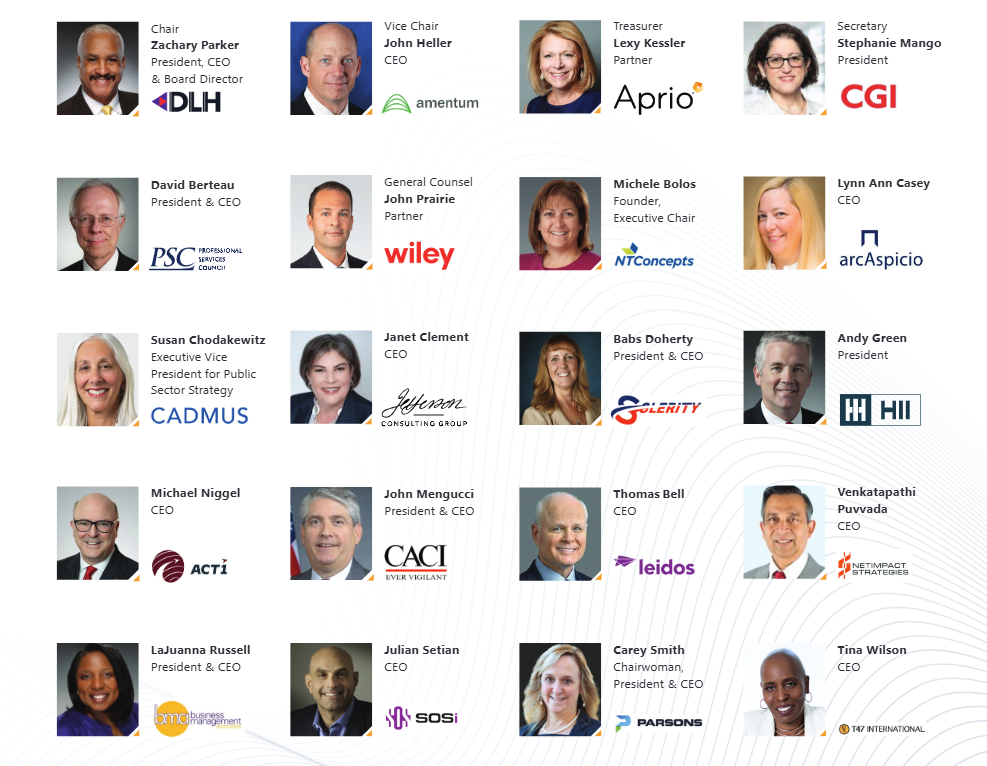
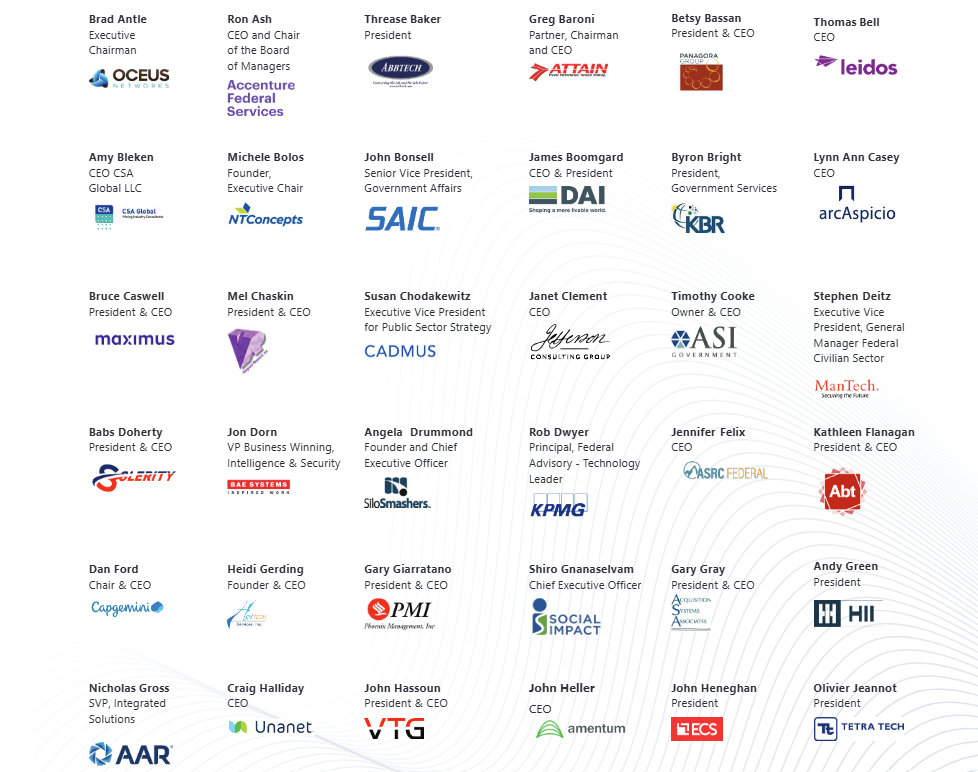


.png?width=1920&height=1080&name=Membership%20(1).png)
.png?width=1920&height=1080&name=Membership%20(2).png)
.png?width=1920&height=1080&name=Membership%20(3).png)
.png?width=1920&height=1080&name=Membership%20(4).png)

